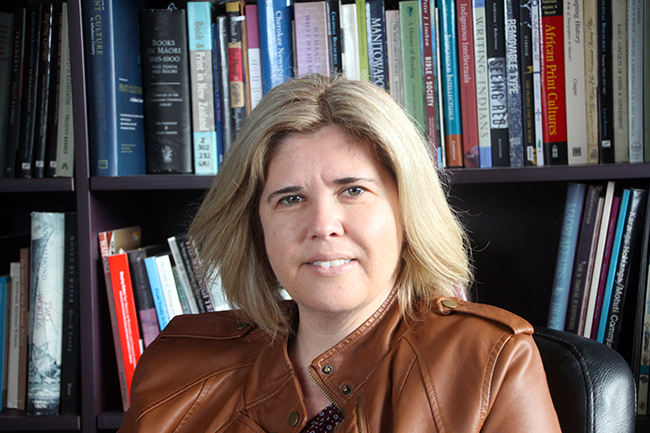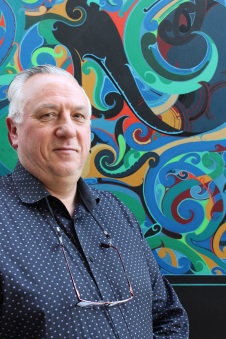Tuesday 20 November 2018 3:59pm

Associate Professor Angela Wanhalla (Department of History and Art History) says being awarded a Marsden Fund grant is further recognition of the importance of Māori history as a research field.
“Our project focuses on the experiences of whānau and communities on the home front during World War II, so we are delighted that the Marsden Fund Council has acknowledged the significance of these perspectives for reinterpreting a major event in Māori and New Zealand history,” she says.
The award will allow her project team to support new research, particularly in the form of summer internships for Māori students.
“We hope this experience will foster their interest in further postgraduate study,” she says.

Associate Professor Lachy Paterson.
Professor Wanhalla says collaborative input from co-investigator Associate Professor Lachy Paterson, Te Tumu School of Māori, Pacific and Indigenous Studies, and History PhD candidate Sarah Christie, who will hold a post-doctoral fellowship, will be “vital to the project”.
Project Summary: Te Hau Kāinga: Histories and Legacies of the Māori Home Front, 1939-45 (awarded $746,000)
“Māori participation in World War II was significant. Nearly 16,000 Māori enlisted for overseas service and around 3,600 served. By March 1943, one-third of the Māori population were contributing to the war effort, many of them civilians.
For Māori, the experience of war instigated significant social, economic and demographic transitions, and stimulated calls for equality of treatment in all areas of life in the post-war decades. Yet, the wartime experience is one of the least understood changes in Māori society. Te Hau Kainga will provide the first sustained examination of the Māori home front from the perspectives of women, young people, whānau and communities who experienced the war at home.
This project, utilising archival research and personal testimonies, will address how ordinary Māori mobilised for wartime economic needs, and made a distinctive contribution to post-war aspirations for political and economic self-determination. Outcomes of the research will include a website and blog to engage with the community, an exhibition, and monograph.
As a pathway to understanding the social and cultural impacts of war, an international symposium will place the Māori experience into a global framework and generate new knowledge about Indigenous experiences of global war.”